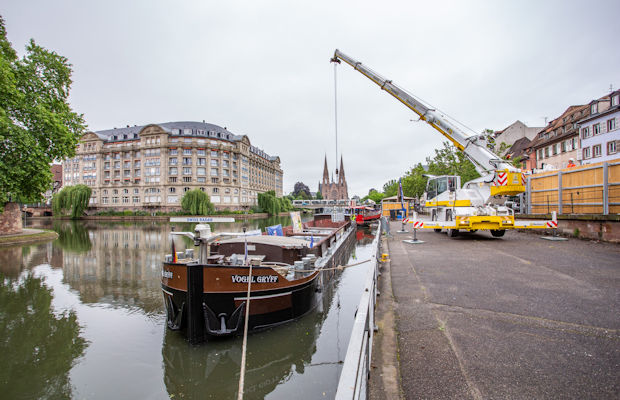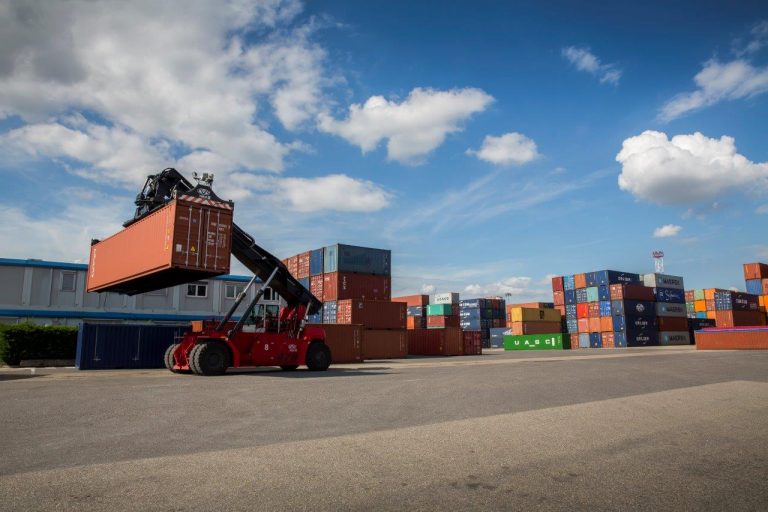
The Ports of Strasbourg are preparing to make an investment of 200 million euros over the next decade, covering the 100 km riverfront from Marckolsheim to Lauterbourg, aiming to encourage companies to adopt river transport. This strategic project includes the construction of a new terminal costing 70 million euros dedicated to the development of rail activities and the creation of a rail and river hub at the southern terminal of the port. Additionally, initiatives like the Modal Shift Support Plan (PARM) and the Zibac Project aim to promote the integration of the river link and encourage decarbonization and multimodality. Thanks to the efficiency of the Rhine, river transport plays a crucial role in the Rhine-Alps corridor, representing a modal share of 54% for cross-border traffic.

The Ports of Strasbourg are announcing an ambitious investment plan of 200 million euros over the next ten years, aiming to encourage companies to adopt river transport. Focusing on decarbonization and multimodality, this project includes the creation of a rail and river hub at the southern terminal. This strategic plan addresses environmental and logistical challenges while enhancing the performance of the Rhine-Alps network.
Table des matières
ToggleA Massive Investment Over Ten Years
Over a ten-year period, the Ports of Strasbourg plan to inject 200 million euros to develop infrastructure along their 100 km riverfront, from Marckolsheim to Lauterbourg. This investment aims to improve existing infrastructure and create new ones to facilitate and encourage the adoption of river transport by companies.
Developing Rail Activity at the Southern Terminal
The heart of this investment plan is the implementation of a new rail and river hub at the southern terminal of the port of Strasbourg. This project alone requires a budget of 70 million euros. The goal is to boost rail activity, thereby favoring better integration of multimodal transport, essential for meeting modern logistical needs.
Zibac Project: Towards Decarbonization
For the period 2024-2028, the Port of Strasbourg will focus on decarbonization with the Zibac project. This initiative aims to significantly reduce CO2 emissions by encouraging the use of alternative and less polluting modes of transport. It is a key advancement to align port operations with global environmental goals.
The Modal Shift Support Plan (PARM)
As part of this development, the Modal Shift Support Plan (PARM) 2023-2027 plays a crucial role. This plan aims to support companies wishing to integrate river transport into their logistics chain. By encouraging modal shift, Strasbourg aims to reduce road traffic, decrease carbon footprint, and streamline exchanges.
The Importance of the Rhine in European Logistics
The Rhine is a vital artery for European logistics. With a modal share of 54% for cross-border traffic in the Rhine-Alps corridor, optimizing its use is crucial. Through these investments, Strasbourg strengthens its strategic positioning within this major axis, thus facilitating the transport of goods across Europe.
Increased Financial Support for Infrastructure Maintenance
The Finance Bill (PLF) for 2024 aims to allocate approximately 1 billion euros for the maintenance of the non-conceded national road network (RRNNC), marking an increase of nearly 50 million euros. This initiative aims to optimize overall logistics while supporting both road and river infrastructure.
With this 200 million euros investment over the next ten years, the Ports of Strasbourg position themselves as a key player in ecological and logistical transformation. This ambitious plan should not only reduce the carbon footprint in the region but also strengthen the economic competitiveness of the Rhine-Alps corridor while providing new logistical opportunities for local and international companies.
Le transport fluvial est un levier majeur pour décarboner le transport de marchandises. Il dispose d'atouts environnementaux et économiques. @vnf_officiel lance une campagne de promotion du transport fluvial car une autre voie est possible. #Fluvial #Transport @cbeaune
— Ministère Écologie Territoires (@Ecologie_Gouv) November 29, 2022





